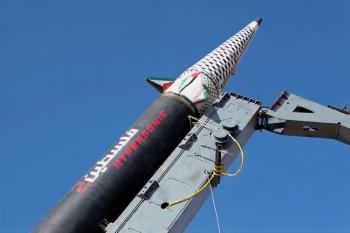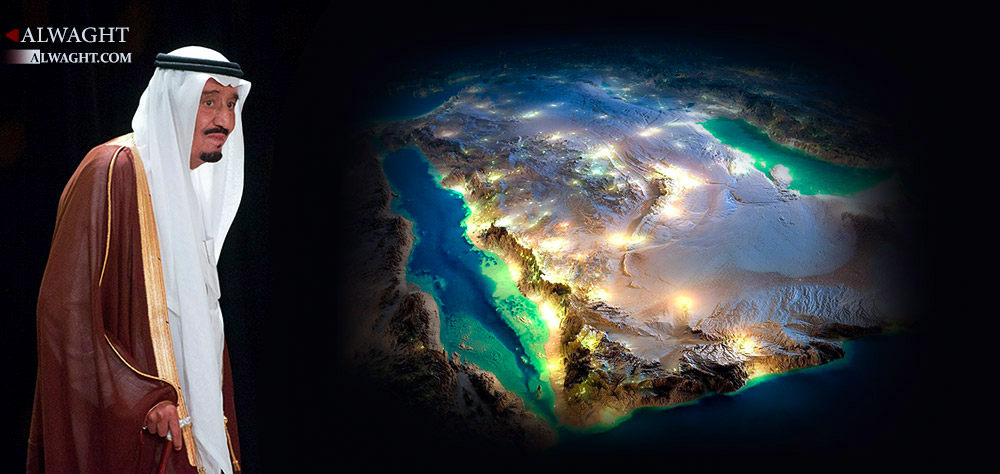Alwaght- Starting from over 300 days ago, the Saudi aggression against Yemen has continued up to date. The warplanes have not stopped their operations, and the bombs and missiles have continued to rain down on the country, with the king’s eyes which have not burst in tears for the children who have lain down beside their bloods. None of the Excellencies and those in white thawbs have cared about the innocent bloods they have shed on the Yemeni soil. The so-called Custodian of the Two Holy Mosques has not become saddened to see the tears streaming down from the eyes of a child who has not tasted the happiness since a long time. The orphans are exposed to damages of a lasting hatred not even peaceable through unloading tons of bombs on the Yemeni civilians.
The story does not end here as Saudi Arabia is insisting on dealing its cheap oil for bombs d r o pped on the Yemeni children. It can be said that despite nearly a year of non-stop bombing by cutting-edge weaponry, Saudi Arabia has not made a notable field advance. Even the recent capture of Taiz and Al Jawf by the Saudi forces is not considered a field gain for Riyadh, and for four reasons it cannot be promoted as an achievement.
1. The Saudi forces alone have been incapable of making any progress during the past months of the military campaign in Yemen and the long time passed by has proven that. In fact, capturing Al Jawf and Taiz has come as a result of a massive battlefield military support the kingdom's forces have received from the pro-Saudi policies countries, as well as the countries which have cheaply sold their independence and the power for making decisions, like Sudan and Somalia.
2. Seizing two cities is not enough to be considered as a win for Riyadh, as the clashes are still under way and yet to be concluded. The strategic roads leading to these two cities are still under the Yemeni Ansarullah movement's control. This means that Saudi Arabia has seized control of areas to which it is almost impossible to send reinforcements.
3. As recently confirmed by the Saudi Foreign Minister Adel al-Jubeir and highlighted by the US Secretary of State John Kerry, the huge American assistance is one of the most significant factors facilitating advances made by the Saudi forces in the two cities. The US support is not limited to weapons and ammunitions delivery but even the operation commands are operated by the American military experts.
Saudi Arabia should know that gaining control of Taiz and Al Jawf is not a field victory as long as the Yemeni capital's control is in the hand of Ansarullah and as long as the political project for which Riyadh has launched its offensive is not realized yet. Actually, what is happening is not but a victory mirage. The capital Sana'a is tough in the face of the aggressors’ forces; therefore, Saudi Arabia has begun to work on breaking the unity of Yemen's fractions through deepening the differences of viewpoints, like what happened recently between the forces of Ansarullah and the former Yemeni President Ali Abdullah Saleh. In fact, Riyadh, through its propaganda machine and intelligence, has begun working on demolishing the cohesion existing between the anti-Saudi sides in order to undermine the anti-Saudi aggression's resistance.
The schism Saudi Arabia is trying to plant among the resistant forces aims at opening the way in front of its forces which seek advancing to Sana'a, an objective that would not actualized because Sana'a's tribes are collectively standing shoulder to shoulder with Ansarullah and there is no divide between them. A couple of days ago, Mohammad Ali al-Houthi, the president of the Ansarullah-linked Supreme Revolutionary Committee, has met with the tribal leaders from Al Haymah Ad Dakhiliyah, Arhab and Bani Hashish districts. The meeting indicated that the unity is still standing and firm in the face of the Saudi forces.
What Saudi Arabia does not understand is the fact that the cost of aggression is continuously on the rise and the kingdom is losing its troops everyday just unlike the preliminary days of the war which was limited to the airstrikes. This means that Saudi Arabia is expecting even rougher and worse days than ever. Riyadh is unable to sense the damages due to the lengthy war time which has made the decision makers get accustomed to the increasing amount of losses. The losses represent a heavy burden on the Riyadh once it decides to end the offensive, because it would find itself faced by a huge amount of losses without any considerable gain.



























